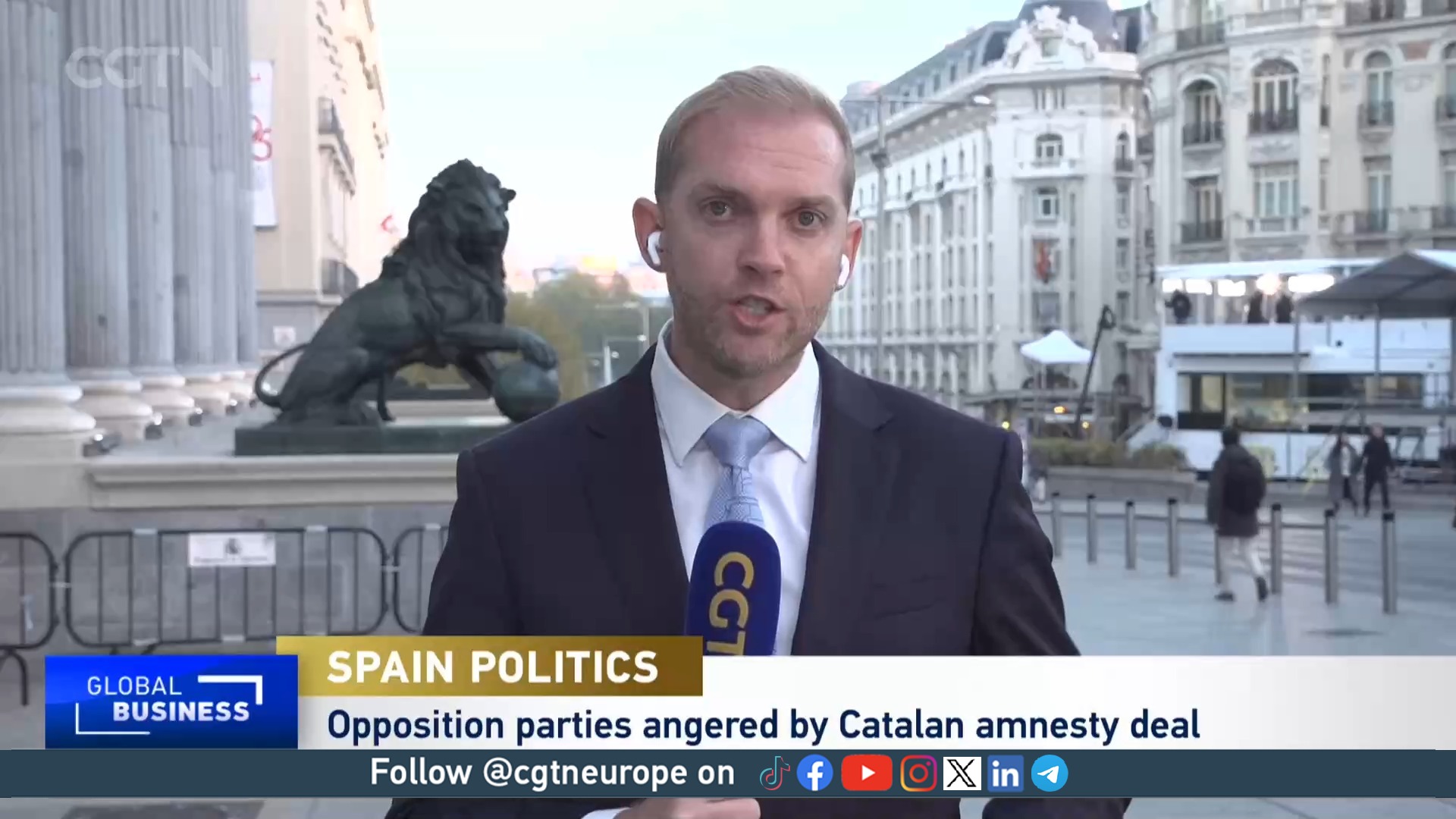04:14

After 116 days of deadlock, Spain finally has a government. Almost four months since the July 23 general election, Pedro Sanchez will enter his second term as prime minister of Spain, after he was re-elected in Spain's Congress by 179 to 171 MP votes.
After five years as leader, Pedro Sanchez has won a new four-year mandate at the head of a broad socialist-led coalition government. That coalition includes hard-left platform Sumar and a number of smaller, nationalist regional parties.
A day of joy for Spain's left who proved their powers of diplomacy by bringing together a broad coalition that includes Basque and Catalan separatist parties. But it's come at the cost of a very divisive amnesty for Catalan separatists.

To get the magic number of 176 seats in Spain's lower house that allowed him to govern, Sanchez needed the support of Catalan nationalist party JUNTS. That allows Catalan politicians - like one of the architects of the 2017 illegal independence referendum Carles Puigdemont - and hundreds of others to return to Spain without facing charges of sedition or any other consequences.
Opponents say Sanchez "sold out Spain" just to stay in power, protestors chanted "traitor" outside Congress while the investiture vote was taking place. A strong police presence protected the Congress in the center of Madrid after a dozen nights of protests, some of which turned violent, with dozens of arrests made.
The Conservative opposition leader Alberto Nunez Feijoo said the amnesty law is "a mistake", while shaking Sanchez's hand after the vote in Congress. Spain's socialist party said "democracy will always prevail in the face of noise and darkness, and today it has been demonstrated again."
Meanwhile, Feijoo said he will "lead the opposition, defending equality between all Spaniards and in the face of the huge assault on the rule of law."
"Your time as Prime Minister will be remembered for the image of former Catalan regional leader (Carles) Puigdemont returning to Catalonia without any consequences," continued Feijoo. "History won't grant you an amnesty."
Sanchez's sensational survival
It's a sensational story of political survival for Sanchez following disastrous local and regional elections in May. With many saying it was the end of his progressive government, early elections in July proved a masterstroke, rallying the socialist political base.
Sanchez defended the amnesty deal - which he had said in the past wouldn't happen - that has allowed him to stay in power. "We have opted for the path of dialogue, we have opted for the path of forgiveness, we have opted for the path of understanding," Sanchez said during the debate on this decisive vote.
"Even though it is very difficult because the positions are very different. We have put negotiation before imposition, we have put reunion before revenge, in short, unity before fracture," he added. Sanchez argued that the amnesty was a necessary step towards healing the nation and stopping the right and far-right from reversing five years of progressive policy making
He points to 80 percent of Catalans in favor of the amnesty, but across Spain one poll showed 70 percent are against it. The work of bringing the country together once more begins now, with voices of discontent loud and another huge protest planned for this Saturday.

Subscribe to Storyboard: A weekly newsletter bringing you the best of CGTN every Friday